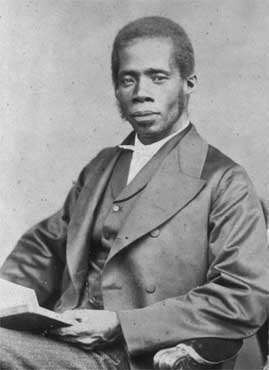T.S. Eliot, the Anglo-Caucasian poet and a Euro- Christian, spoke out a century later on some of the concerns Blyden foresaw: What is the problem of our socalled enlightened modernist culture, with its materialism, its smug complacency, its intellectual pride? Eliot writes: "We know too much, and believe too little. Our literature is a substitute for religion, and so is our religion."
Martin Luther King said [17 May 1957, WDC Prayer Pilgrimage for Freedom]:[May we so live today, that ...] when the history books are written in the future, the historians will have to look back and say, 'There lived a great people. A people with fleecy locks and black complexion, but a people who injected new meaning into the veins of civilization; a people which stood up with dignity and honor and saved Western civilization in her darkest hour; a people that gave new integrity and a new dimension of love to our civilization.' When that happens, the morning stars will sing together, and the sons of God will shout for joy.
[Job 38:7 -- King James Version]
Again and again modern heroes of the spirit have arisen to demonstrate a courage and a belief in the power of brotherhood, if not divine love and power itself, that have inspired the multitudes. Some have been men of quiet or very private faith, others have been clergymen. All have been beacons to the Ages through their witness of character and truth. Following are recent Nobel Peace Prize recipients. How many other heroes are yet to be noticed, honored, or heeded?
|
